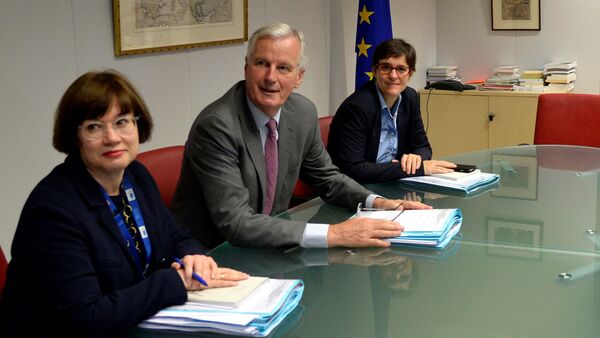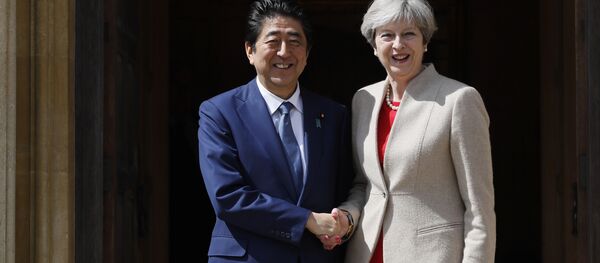The report exposes how big corporations and the finance sector dominate back-room discussions with both EU and British negotiators.
"Corporations always have a lot of money to spend on lobbying, they have a lot of connections, a lot of background and it is incumbent upon the government to ensure maximum participation and engagement from all sectors of society, people who don't have the money to pay the lobbyists," said Jean Blaylock, whose democratic social justice organization works as part of a global movement to challenge the powerful and create a more just and equal world.
She complained about the government being reticent about sharing any information and that financiers enjoy unlimited access to the government.
"Members of the financial sector have had 46 meetings with the government, while trade unions and NGOs had only one. This is completely disproportionate and unreasonable," Blaylock noted.
When asked whether she expected any change of policy by the government and whether it was going to be more transparent and more willing to speak to NGOs and trade unions, she said that she certainly hoped that there would be some changes.
Answering a question about how labor unions, NGOs and ordinary citizen can influence the policy of the government, especially in view of its clear pro-corporate bias, Jean Blaylock underscored the importance of pushing the government to be more transparent about what is does.
"We should keep asking them to account for their actions and answer our questions," she emphasized.
The report from the Corporate Europe Observatory and Global Justice found that the UK team's meetings were dominated by financial organizations, which had 46 meetings with the government in just six months.
At the same time, two of Britain's largest trade unions, which represent a total of almost 3 billion working people, had only one meeting each. According to the findings, other small business organizations, labor groups and NGOs are also being marginalized in the talks.
Brexit negotiations between the United Kingdom and the European Union officially kicked off on June 19, and are due to be completed by the end of March 2019.





